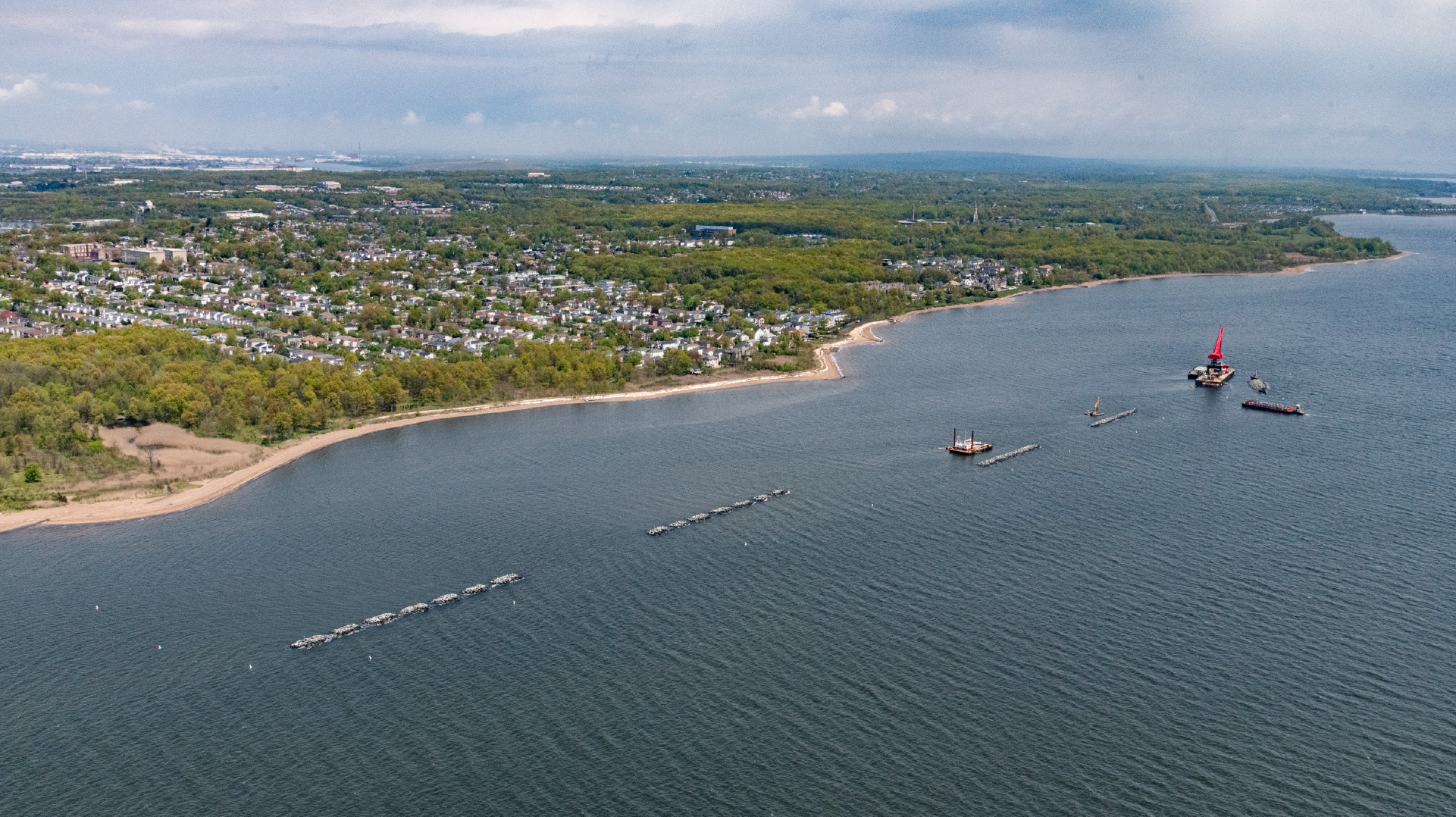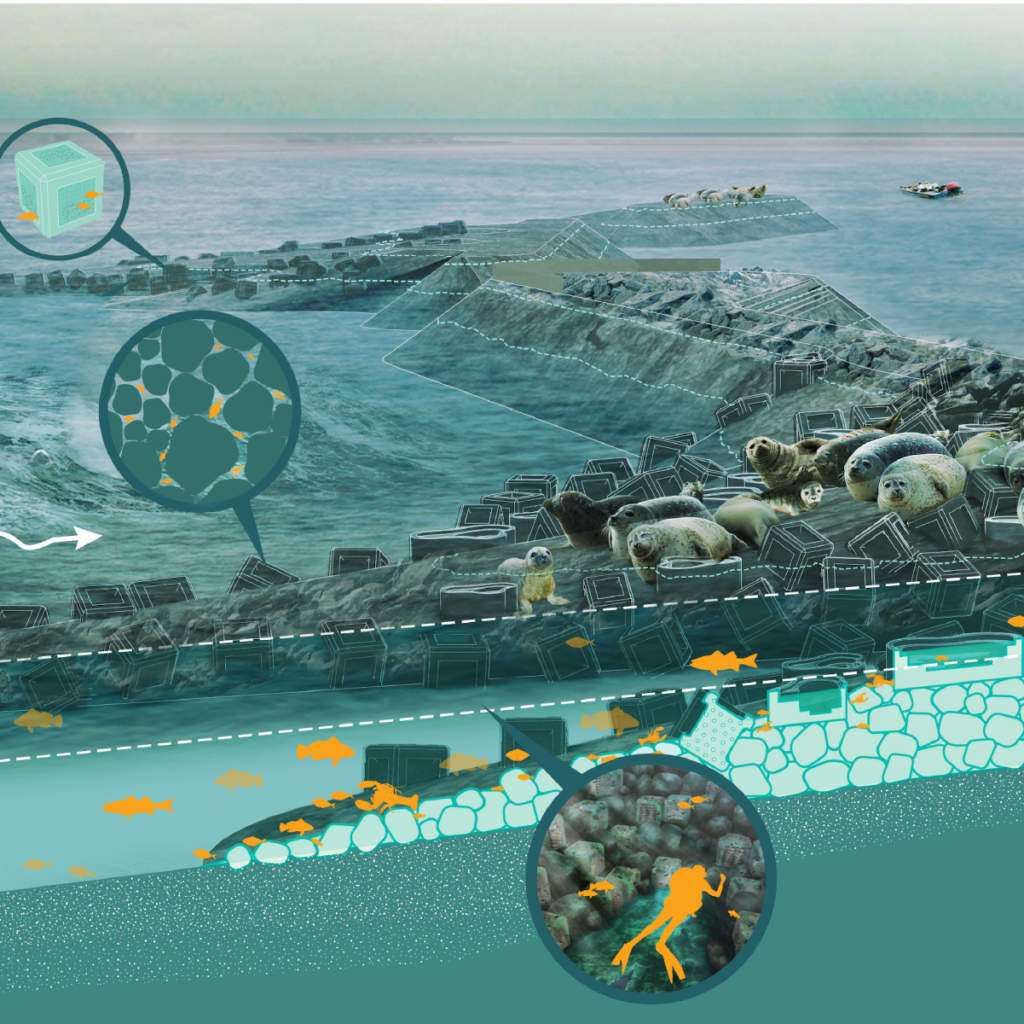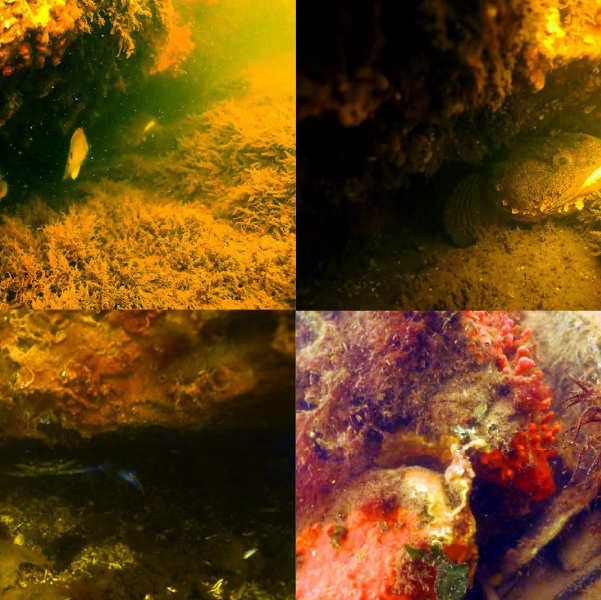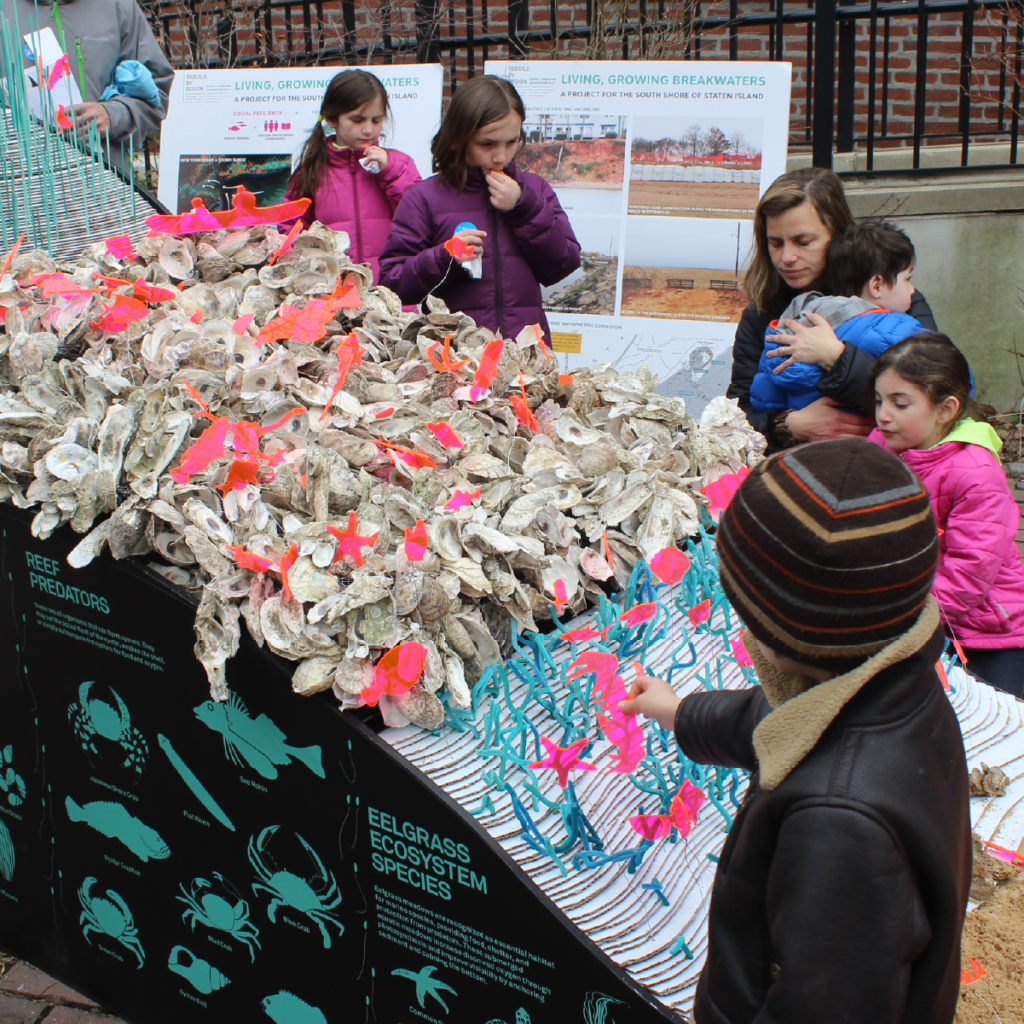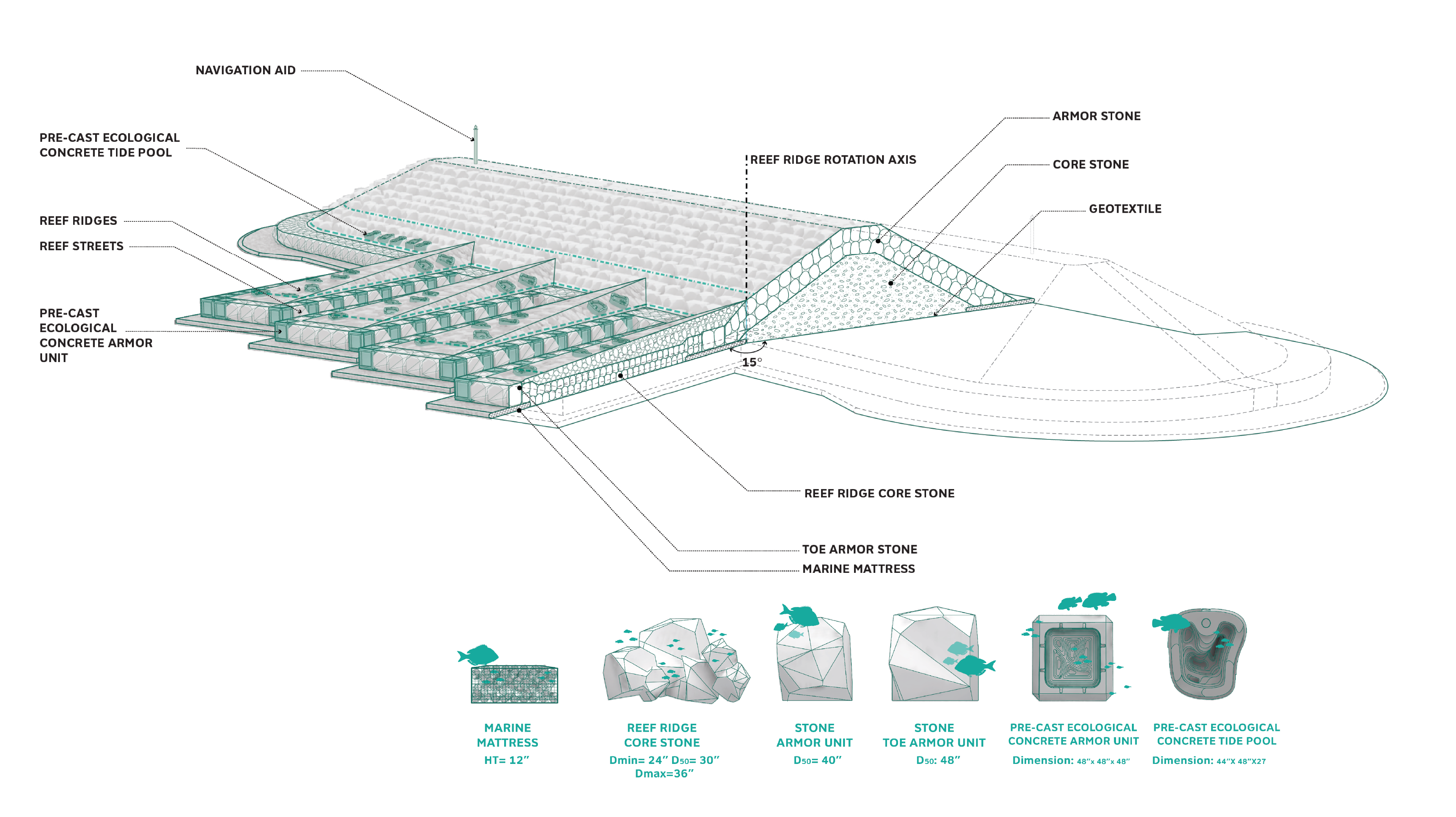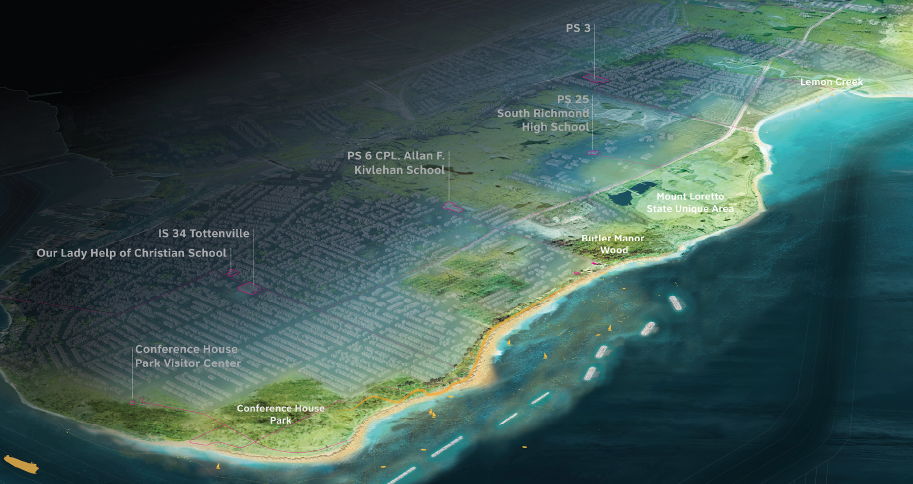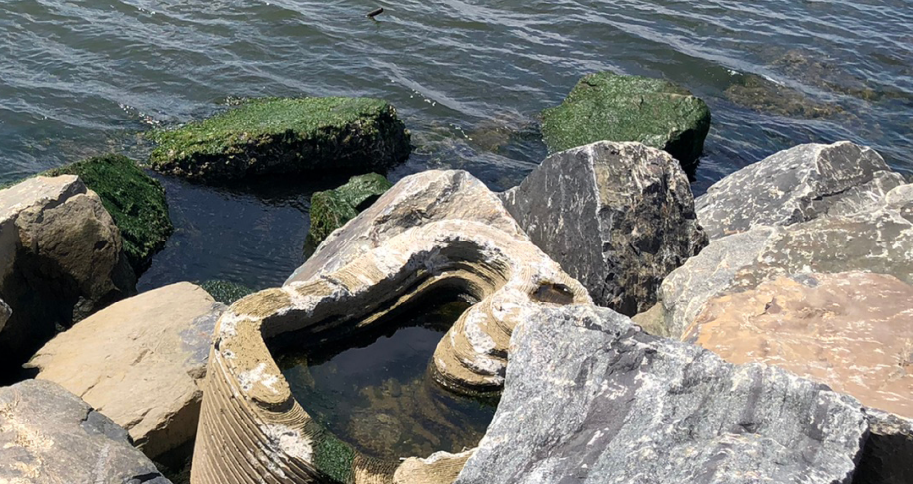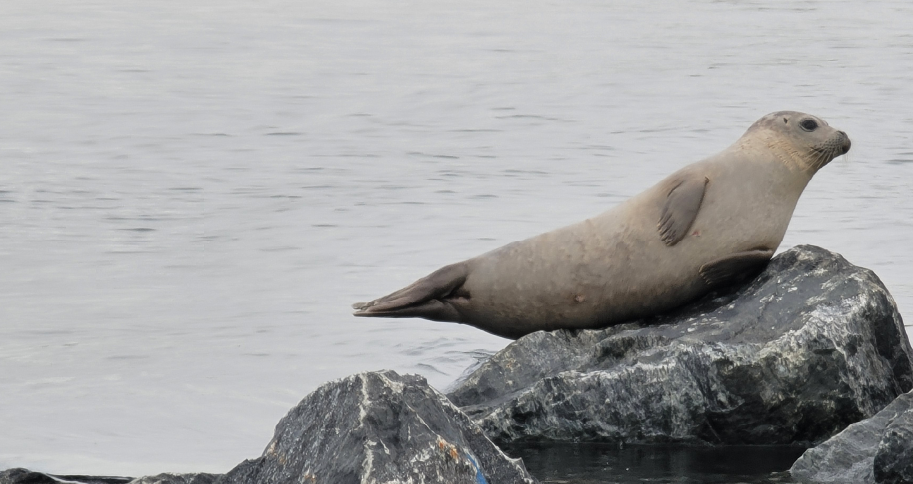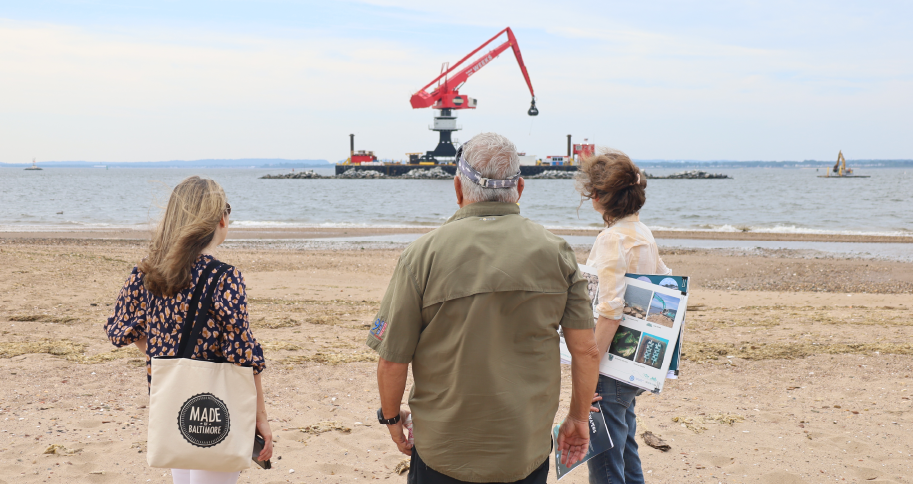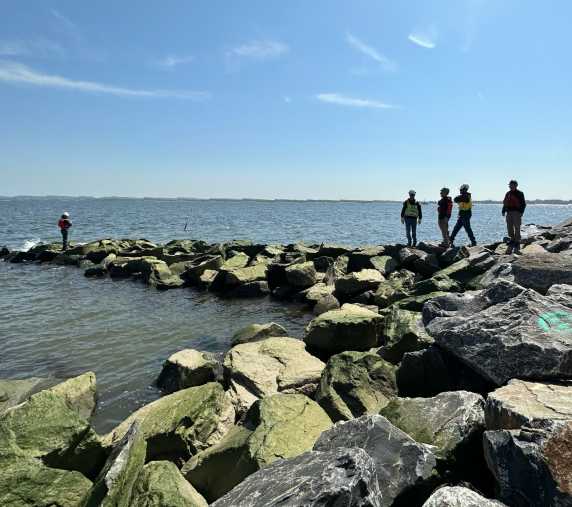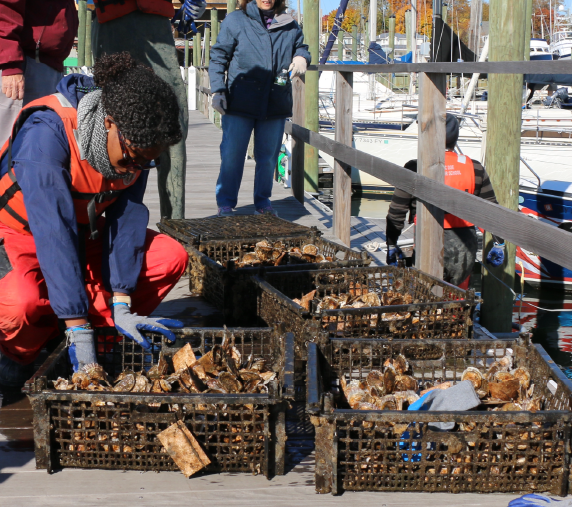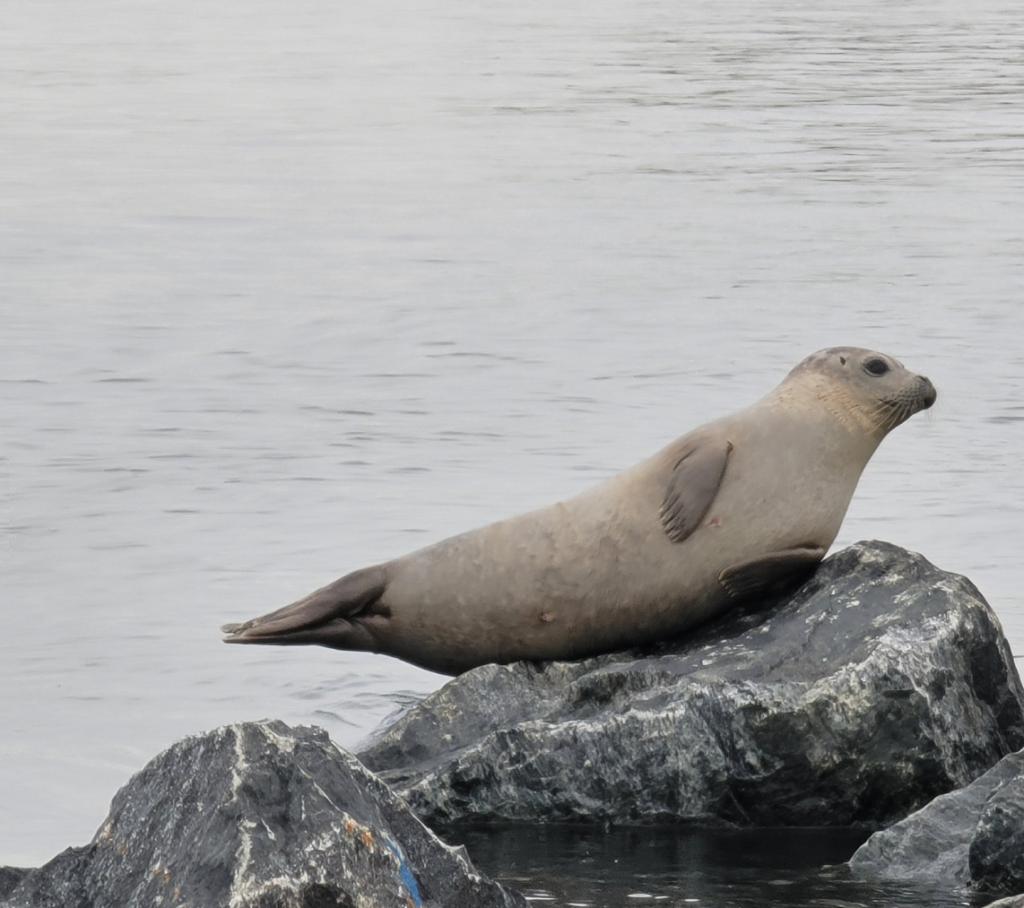Adaptation
2023THE PROJECT
Oysters are design collaborators in a visionary green infrastructure project off the shore of Staten Island in New York. SCAPE and founder Kate Orff receive the fifth OBEL AWARD architecture prize for the radical breakwaters design and community and ecosystems-driven approach to adaptation.
Living Breakwaters, the 2023 OBEL AWARD winning project, is a half mile linear necklace of near-shore breakwaters along the south shore of Staten Island in New York. A mix of stones and carefully designed ecologically enhanced concrete units are placed strategically to calm the water, reduce erosion, and rebuild onshore beaches, but also to support oysters, fin fish, and other marine species. The oysters will form part of the design of the artificial reef formation. As they reproduce, the breakwaters grow denser and able to provide more protection of the shore.
Beyond the breakwaters, the project has involved nearly a decade of educational and engagement-related programming designed to advance community stewardship, citizen science, and recreation along the water’s edge.
The Living Breakwaters concept was developed by a large, multi-disciplinary team led by SCAPE as part of a winning proposal for Rebuild By Design, the design competition launched by the U.S. Department of Housing and Urban Development (HUD) after Superstorm Sandy.
A visionary green infrastructure project, ‘Living Breakwaters’ reduces risk, revives ecologies, and connects people to the shoreline. Thus, the project tackles the full task of adaptation according to Chair of the OBEL AWARD jury, Martha Schwartz:
“Breakwaters is an ancient idea for how to protect shorelines – and the people who live close to them – by building underwater seawalls to defend a harbor or a beach from the force of waves. Kate has designed an extraordinary, modern-day interpretation, the Living Breakwaters, which will not only protect humans and revitalize the coastline of New York City, but also restore lost marine biodiversity. This is a visionary project that tackles the full task of adaptation, and which has the capacity to inspire and to positively impact vulnerable shorelines worldwide.”
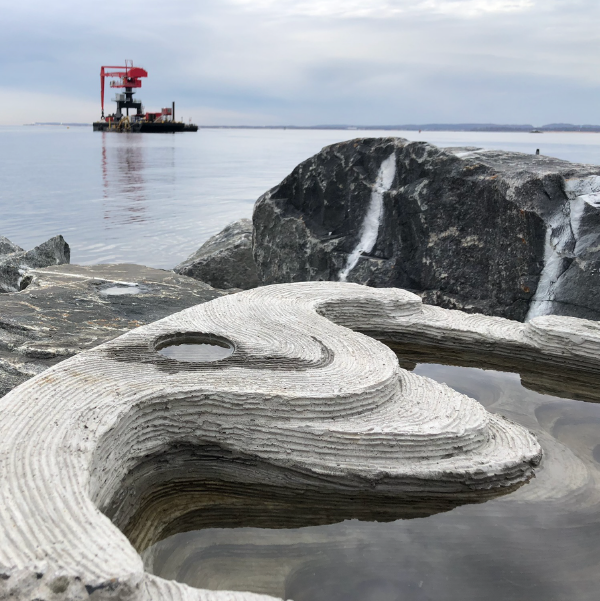
Supported by years of iterative modeling and robust scientific analysis, the breakwaters are designed to attenuate wave energy, lessen the effects of coastal erosion, and reduce physical risk for on-shore communities.
JURY’S STATEMENT
The ecological and social responsibilities of architecture have been a major focus of the Obel Award since its founding in 2019. The theme established by the jury for 2023 is ADAPTATION, which refers to the necessity and possibilities of architecture to adapt to a world in flux. The ecosystems, landscapes, and human structures and systems that were once intertwined with architectures of permanence can no longer be taken for granted. Instead, adaptation calls for an architecture that confronts uncertainty and acts through time so that both human and non-human life can continue to survive and even thrive.
The 2023 winning project, Living Breakwater, provides a real alternative to the walls, levees, and barriers so often built in our coastal waterways and oceans seeking to defend us from the ravages of human-induced climate change.
Living Breakwaters adheres to a different worldview in which natural systems are valued for their protective benefit. With the project, SCAPE and its founding principal Kate Orff put forward a drastically different concept of adaptation in the built environment that operates on several scales, increasing both physical, ecological, and social resilience, and which activates both human and non-human life in the design process.
The physical design of Living Breakwaters is an ingenious mix of natural and carefully modelled artificial elements that mimic naturally occurring reef formations in order to support marine life. It is a strongly science-based approach, an attempt to design to stimulate and collaborate with nature. With time, oysters and other underwater organisms will adhere to the designed structures and strengthen them and their ability to protect the shore, thus blurring the lines between nature and design.
Living Breakwaters also acknowledges that climate adaptation requires people to be on board. Humans have an active role in the adaptation process in Living Breakwaters, and Kate and her team are especially adept at motivating people and communities to become stewards of their local environment.
Architecture must recognise its ecological and social responsibilities. Living Breakwaters does exactly that. As such, this relatively low-cost, low-tech response provides a seminal example of how to design not against but with nature in adapting to the changes that lie ahead.
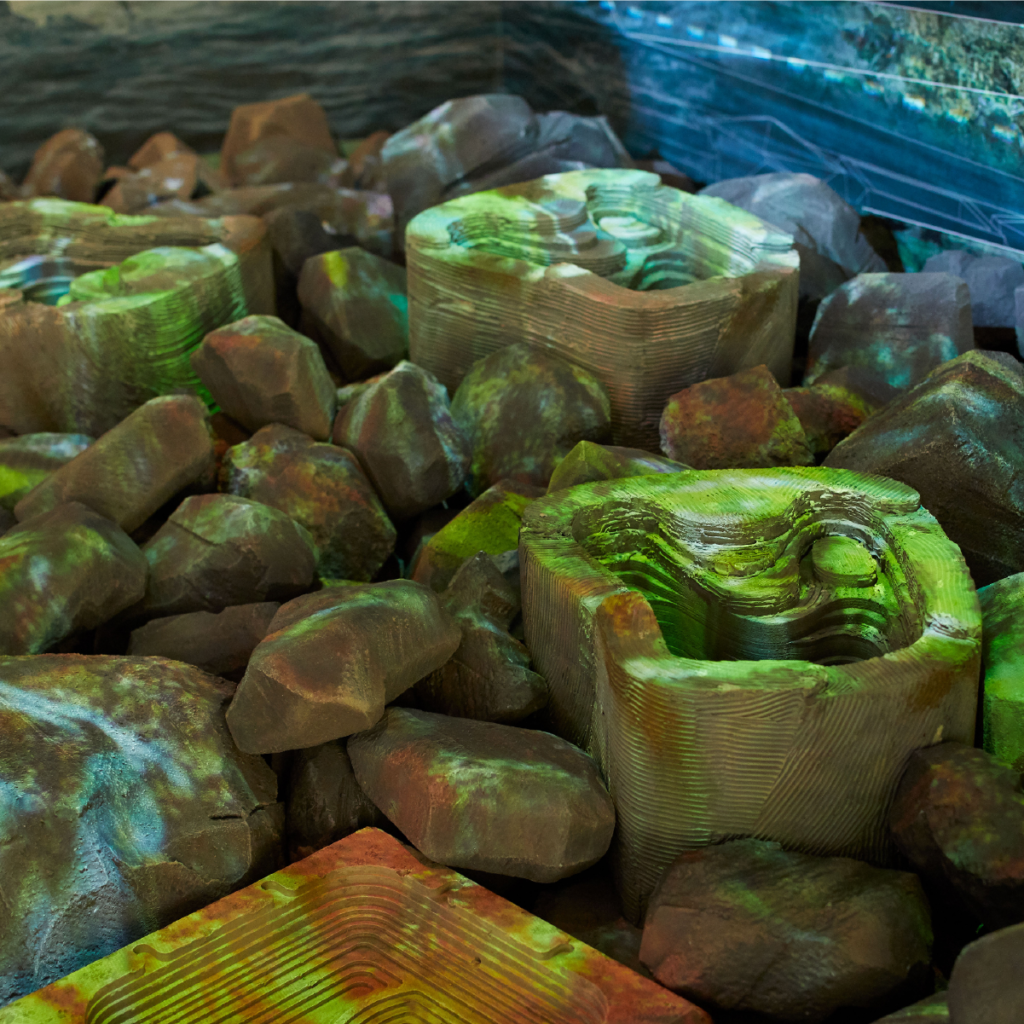
ABOUT KATE ORFF
Kate Orff, RLA, FASLA, is the Founding Principal of SCAPE. As the first-ever landscape architect to receive the MacArthur Foundation’s prestigious ‘Genius’ Fellowship in 2017, Orff has led a vanguard movement across the design fields to address sweeping 21st century challenges in social and environmental justice through projects, research, activism, and publications.
In 2023, Kate was named to the TIME100 Most Influential People in the world, as the first landscape architect to ever be included on the list. In 2019, she was elevated to the American Society of Landscape Architects (ASLA) Council of Fellows—one of the highest honors bestowed on landscape architects practicing in the U.S. She currently sits on the Commission on Accelerating Climate Action for the American Academy of Arts & Sciences. In 2019, she accepted a National Design Award from the Cooper Hewitt, National Design Museum, on behalf of SCAPE, and was named a Hero of the Harbor by the Waterfront Alliance. She was a 2012 United States Artist Fellow, dubbed an Elle “Planet Fixer,” and has been profiled and interviewed extensively for publications including The New Yorker, The New York Times, The Washington Post, The Economist, National Geographic and more.
Orff graduated with a Bachelor’s in Political and Social Thought from the University of Virginia with Distinction and earned a Master’s in Landscape Architecture from the Graduate School of Design (GSD) at Harvard University. She is also the Director of the Urban Design Program, Co-Director of the Center for Resilient Cities and Landscapes (CRCL), and Professor at Columbia University’s Graduate School of Architecture, Planning and Preservation (GSAPP).


